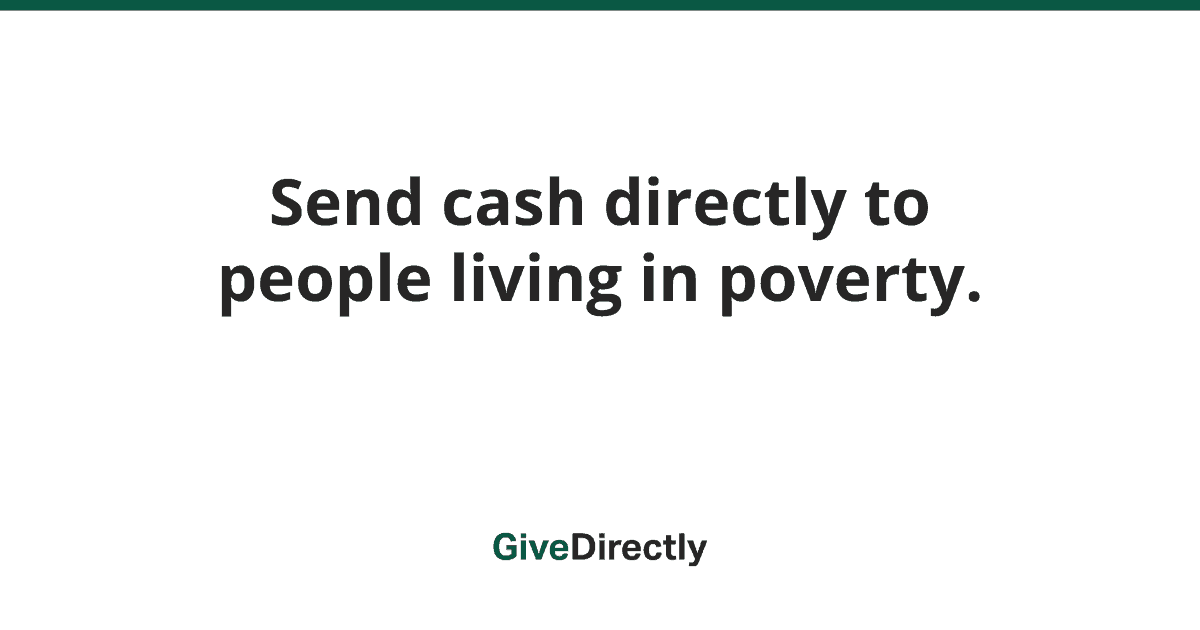
The GiveDirectly Blog
Read updates from our team on the latest research, program learnings, and more.


4 years in the making: first cash benchmarking results released

Our take on HS18, revisited

Longer-term impacts of GiveDirectly transfers – first evidence

Deepening our understanding of impact: who and how long?

Human stories are not the opposite of data

Long term impacts of cash transfers here at home

Measuring effects

What is (and isn’t) in the new ODI review of cash evidence?

What’s the hype evidence?

The Other Blattman Study
